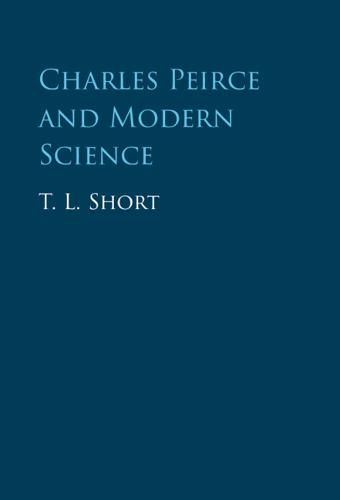Readings Newsletter
Become a Readings Member to make your shopping experience even easier.
Sign in or sign up for free!
You’re not far away from qualifying for FREE standard shipping within Australia
You’ve qualified for FREE standard shipping within Australia
The cart is loading…






In this book, T. L. Short places the notorious difficulties of Peirce’s important writings in a more productive light, arguing that he wrote philosophy as a scientist, by framing conjectures intended to be refined or superseded in the inquiries they initiate. He argues also that Peirce held that the methods and metaphysics of modern science are amended as inquiry progresses, making metaphysics a branch of empirical knowledge. Additionally, Short shows that Peirce’s scientific work expanded empiricism on empirical grounds, grounding his phenomenology and subverting the fact/value dichotomy, and that he understood statistical explanations in nineteenth-century science as reintroducing the idea of final causation, now made empirical. Those innovations underlie Peirce’s late ideas of a normative science and of philosophy as a branch of science. Short’s rich and original study shows us how to read Peirce’s writings and why they are worth reading.
$9.00 standard shipping within Australia
FREE standard shipping within Australia for orders over $100.00
Express & International shipping calculated at checkout
In this book, T. L. Short places the notorious difficulties of Peirce’s important writings in a more productive light, arguing that he wrote philosophy as a scientist, by framing conjectures intended to be refined or superseded in the inquiries they initiate. He argues also that Peirce held that the methods and metaphysics of modern science are amended as inquiry progresses, making metaphysics a branch of empirical knowledge. Additionally, Short shows that Peirce’s scientific work expanded empiricism on empirical grounds, grounding his phenomenology and subverting the fact/value dichotomy, and that he understood statistical explanations in nineteenth-century science as reintroducing the idea of final causation, now made empirical. Those innovations underlie Peirce’s late ideas of a normative science and of philosophy as a branch of science. Short’s rich and original study shows us how to read Peirce’s writings and why they are worth reading.